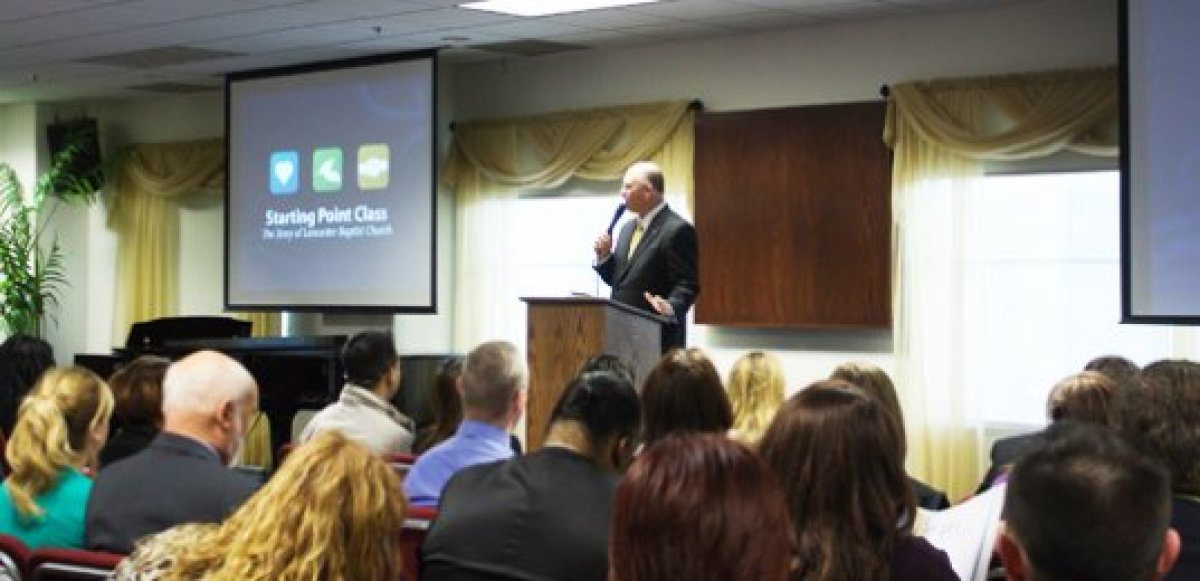Every few months I have the privilege to teach a three-week newcomers class at our church. I relish this time with our new and prospective members, and I’ve found that they thoroughly enjoy it as well.
In the earliest days of our church, our new members orientation consisted of an afternoon reception at our home. Terrie and I would set up chairs in the living room and provide food for fellowship. We would both share our testimonies, and I would explain to our new members the structure and vision of our church. I’d share our Baptist distinctives with them, express my heart to be available for their spiritual needs, and give them an opportunity to ask questions.
Over the years, this new member orientation has evolved. Now we offer it as a three-week class during our normal Sunday school hour, and we call it “Starting Point.” In our most recent class, we had about seventy-five prospective members from a variety of backgrounds. We had single moms, a couple who were saved from an Islamic background, a single dad from a Catholic background, and several young couples with no religious background at all. You can see how they would have many questions regarding what we believe and even what a local church is supposed to be and do.
Every time I teach this class, I’m reminded of how important it is to acclimate the newcomer to our church and equip them with an understanding of the New Testament local church.
Sometimes friends in ministry ask what all I include in this class and how we structure it. I’ve already shared some more in-depth thoughts on that in a Spiritual Leaderhip Podcast, but in a nutshell, here are a few thoughts:
- On week 1, I teach about the story of Lancaster Baptist church—our history as well as some of our main principles.
- On week 2, I teach about life in the family of Lancaster Baptist. This includes our three-fold purpose statement (loving God, growing together, serving others) with practical applications for being part of these areas.
- On week 3, I teach about the biblical structure of a church as well as specifics of what this looks like in our church. I explain the offices of the pastor and deacon, who they can contact for help, and encourage them to fully engage in one of the adult Bible classes.
- In our church, we encourage new members as well as potential members to attend “Starting Point.” Often, the potential members make the decision to join the church at some point during this class.
- On the Sunday evening of the third class, I introduce the new members to our church family, and we have a church-wide reception. This allows for our existing members to reach out to the newcomers with a warm welcome. It also allows newcomers to begin forming new relationships.
Whatever your strategy for orientating new members to your church family, I can’t stress strongly enough that you do have some strategy.



